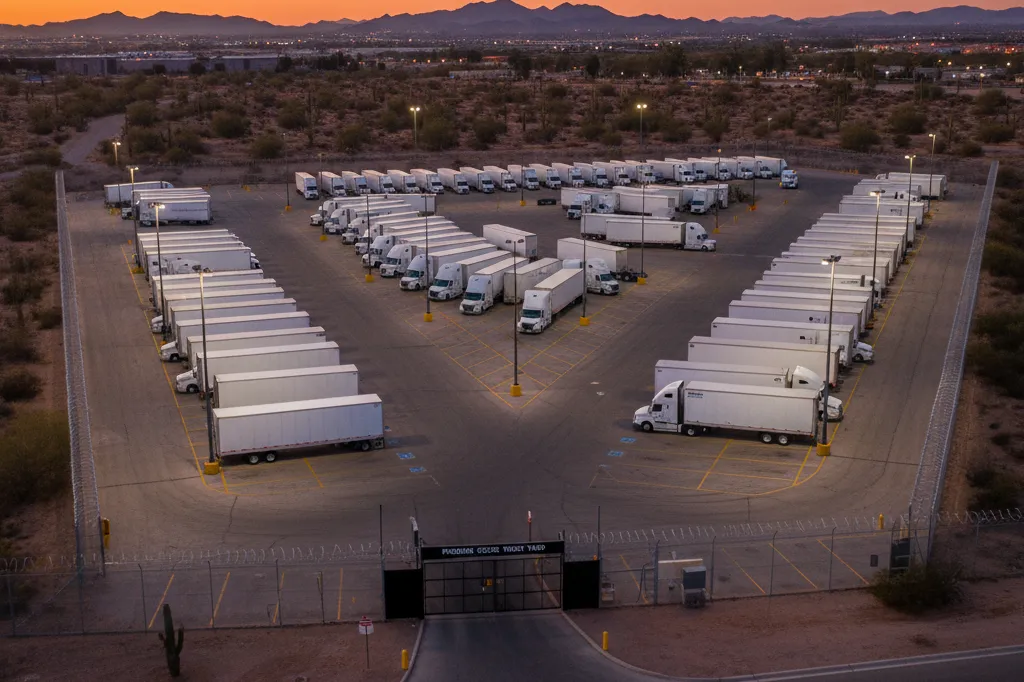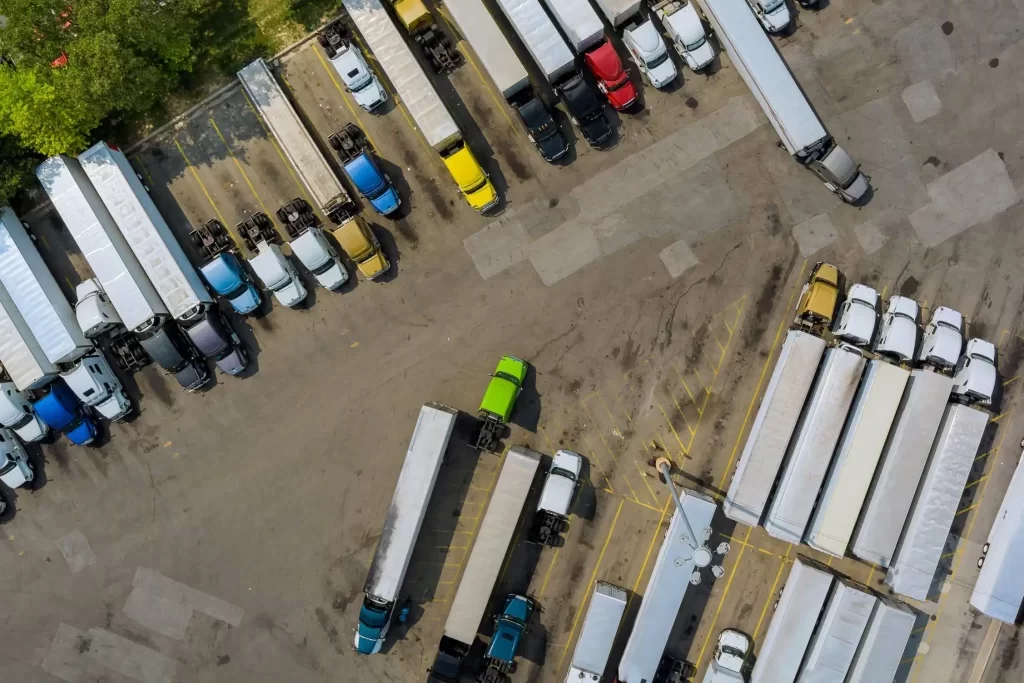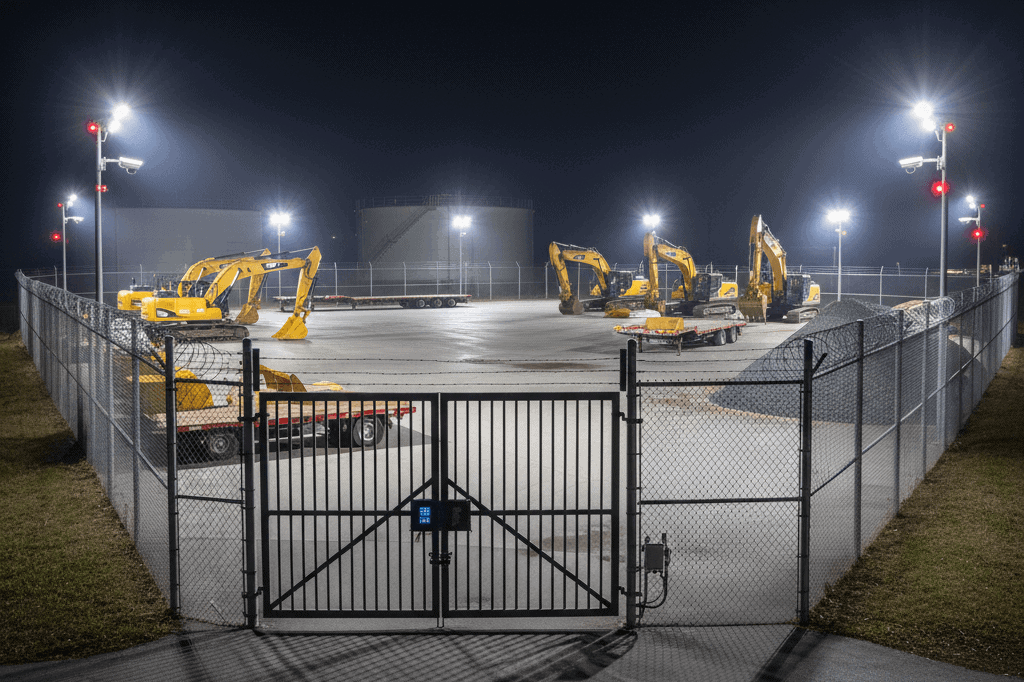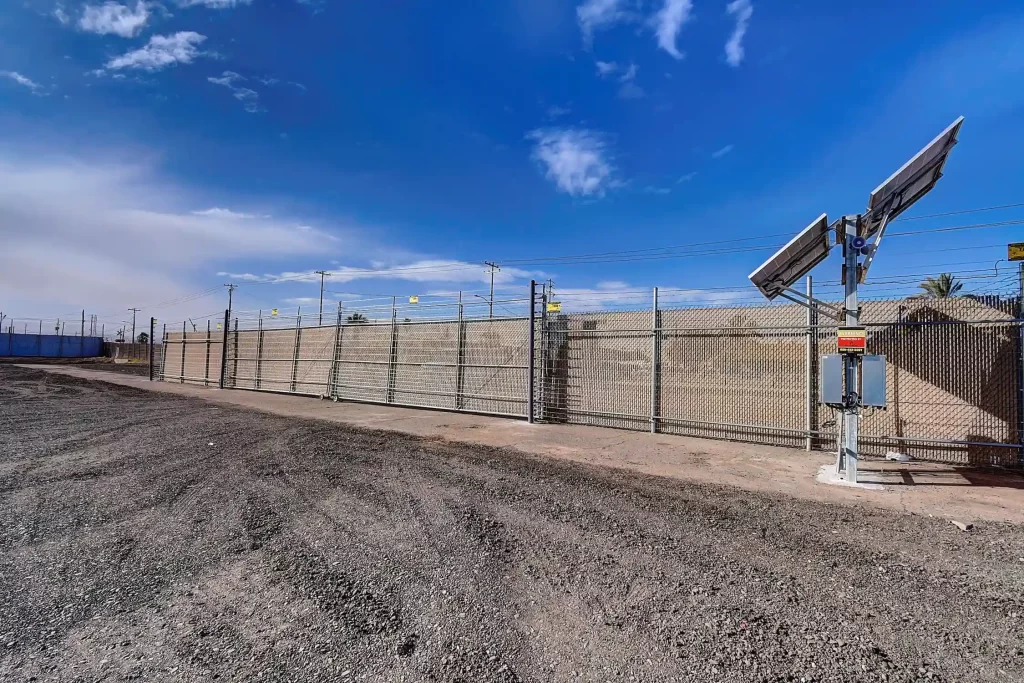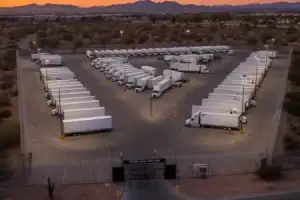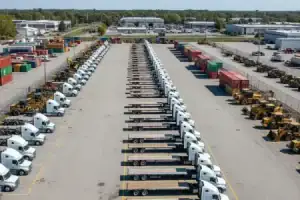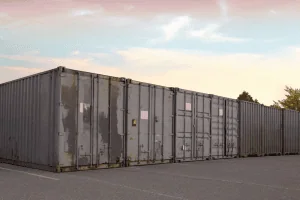Contractors handle a constant flow of tools, materials, and vehicles that need a secure place between projects. Job sites change frequently, and warehouse space can be costly or limited. That’s where an outdoor storage solutions becomes a practical and reliable option.
Instead of crowding job yards or leaving valuable machinery exposed on-site, many contractors now use purpose-built storage facilities to organize their operations. These locations are designed to handle heavy equipment, trailers, and building materials safely while keeping them accessible whenever work begins again.
For businesses that rely on logistics and mobility—such as construction, landscaping, or electrical contracting—a well-managed business storage plan can make all the difference. The right facility reduces clutter, lowers transportation time, and ensures assets remain protected throughout the year.
Why Contractors Need Reliable Outdoor Storage Solutions
Every contractor faces the same problem: finding a place for everything. Excavators, loaders, trailers, and bulk materials often can’t fit inside small garages or job trailers. Temporary storage options may seem convenient, but they expose valuable tools to weather, theft, and damage.
Reliable contractor storage provides a stable base between projects. Instead of leaving items scattered across multiple locations, contractors can consolidate their assets within one secure, accessible space. This organization improves efficiency and saves money by preventing loss or unnecessary equipment rentals.
For example, a landscaping firm may use an outdoor storage yard to park mowers, dump trailers, and supply pallets during the off-season. A construction crew can store scaffolding, power tools, and vehicles without blocking jobsite space. By having a single point of access, teams spend less time searching for materials and more time completing projects.
Ultimately, dependable storage keeps operations predictable. Contractors can plan equipment schedules more effectively, maintain vehicles between uses, and protect expensive assets from environmental exposure or vandalism.
What Makes a Good Storage Facility for Contractors
Not all storage facilities are created equal. A proper commercial storage site for contractors must combine security, space, and convenience. These aren’t the small personal units used for home belongings—they’re larger lots built for industrial and commercial use.
A high-quality facility should include:
- Gated access and perimeter fencing: Controlled entry ensures only authorized personnel can enter the property.
- 24/7 surveillance and lighting: Security cameras and bright floodlights reduce theft risk, especially in high-traffic areas.
- Wide drive lanes: Contractors often move large trucks, trailers, or heavy equipment. Ample space allows easy maneuvering without damage or delays.
- Proximity to major routes: Quick access to highways or construction zones cuts travel time and fuel expenses.
- Flexible leasing options: Month-to-month or long-term leases let contractors adjust as projects expand or shift.
For Arizona-based businesses, weather is another factor. Phoenix’s dry climate makes outdoor storage solutions ideal for heavy equipment that doesn’t require climate control. Facilities designed for open-air storage can handle everything from steel containers to asphalt trucks without risk of corrosion or freezing damage.
When these features come together, the result is a facility that supports productivity instead of slowing it down. Contractors gain the peace of mind that their equipment is safe, accessible, and ready to deploy at any time.
Outdoor vs. Indoor Storage: What’s the Right Fit?
Deciding between indoor and outdoor storage depends on what needs to be stored—and for how long. Each option offers different advantages.
Indoor storage provides climate control and full weather protection. It’s best suited for items like sensitive electronics, paint supplies, or delicate materials that could degrade in direct sun or rain. However, indoor space usually comes at a premium cost and limited square footage.
Outdoor storage, on the other hand, offers freedom and affordability. Contractors use open lots to park trucks, store steel frames, concrete forms, or large spools of wiring. These materials don’t require indoor protection but still need secure surroundings.
For example, a roofing contractor might store materials like shingles and ladders indoors while keeping dump trailers and vehicles outside. A balanced approach works well—using indoor space for fragile items and outdoor yards for durable ones.
In Phoenix, where the climate stays dry most of the year, outdoor storage remains the most practical choice. Contractors can reduce costs, improve accessibility, and safely store materials that are built to withstand outdoor conditions.
Benefits of Dedicated Contractor Storage Yards
Dedicated contractor storage yards are more than parking spaces—they’re operational hubs. These facilities allow companies to organize equipment and materials in a way that supports day-to-day workflow.
Some of the key advantages include:
1. Streamlined operations
Centralized business storage eliminates the wasted effort of moving assets between multiple locations. Equipment, vehicles, and materials can be organized into specific zones—such as one area for vehicles, another for jobsite tools, and another for spare materials. This setup helps teams locate what they need quickly, dispatch trucks on schedule, and avoid costly delays caused by misplaced equipment. For contractors juggling several projects at once, a single, well-structured yard saves hours each week.
2. Lower theft and damage risk
Job sites often lack proper security, leaving expensive tools and machinery vulnerable overnight. By relocating those items to a secure facility, contractors reduce exposure to theft, vandalism, and harsh weather. Most commercial yards feature fencing, cameras, and controlled gate access—measures that protect equipment even when crews are off the clock. The result is not just peace of mind, but real financial savings by avoiding equipment replacement and downtime.
3. Better maintenance management
Having all vehicles and machinery in one place simplifies regular inspections and upkeep. Crews can schedule maintenance checks directly from the yard, monitor fuel and fluid levels, or perform quick repairs before deployment. A centralized outdoor storage area also makes it easier to track equipment conditions and document service intervals, ensuring assets stay reliable and ready for every job.
4. Scalable space options
As business operations expand, storage needs grow too. Dedicated contractor storage facilities offer flexible space options that can scale with your projects. Instead of committing to a long-term warehouse lease, contractors can lease additional outdoor lots or sections as needed. This flexibility allows companies to adapt quickly to seasonal peaks, new contracts, or fleet expansions without disrupting daily workflow.
5. Cost efficiency
Compared to warehouse rentals, commercial storage yards deliver much greater value per square foot. Contractors gain large, open storage areas for heavy equipment and materials without paying extra for climate control or indoor amenities that aren’t necessary. Lower rental costs, combined with reduced risk of loss and faster operations, translate into significant long-term savings for any growing business using an outdoor storage facility in Phoenix.
In essence, dedicated contractor storage yards create order and structure. They provide the physical infrastructure for contractors to stay organized, secure, and adaptable—three essential qualities that directly enhance productivity and profitability on every project.
Security Features That Matter Most
Security is non-negotiable when it comes to business storage. Contractors store high-value equipment that, if stolen, can delay entire projects. A reliable storage facility should prioritize layered protection systems that deter unauthorized access.
Gated and coded entry ensures only verified users can enter. Some modern yards integrate RFID keycards or digital access systems for even tighter control. Perimeter fencing and security lighting act as visual deterrents, while 24-hour video surveillance captures activity across the property.
For contractors storing vehicles, motion detection cameras and plate recognition systems add an extra layer of monitoring. These technologies help identify unusual activity before losses occur.
Additionally, on-site management or regular patrols improve accountability. Having staff present—especially at large outdoor storage sites—helps maintain order and quick response if issues arise.
By combining these measures, contractors can confidently store excavators, trailers, or materials overnight without fear of theft or damage. The security provided by professional facilities translates directly to business reliability and peace of mind.
Cost Considerations and Value
Budget always influences storage decisions. Fortunately, outdoor storage solutions typically provides the best cost-to-benefit ratio for contractors who need ample space without unnecessary overhead.
Several factors affect commercial storage pricing:
- Location: Proximity to urban areas or highway routes can increase rates. However, convenient access usually saves more time and fuel than it costs.
- Security level: Facilities with advanced monitoring systems, fencing, and staff presence may charge more—but also deliver far greater protection.
- Lot size and type: Larger spaces or reinforced surfaces suitable for heavy machinery can raise monthly fees slightly.
- Lease flexibility: Month-to-month options offer freedom but may be priced slightly higher than long-term agreements.
For most contractors, the savings from fewer thefts, faster loading times, and better organization far outweigh the costs. Outdoor yards also eliminate the need for building maintenance, heating, or cooling.
When compared to renting or owning warehouse property, industrial yards remain a cost-effective alternative to traditional facilities. Contractors get room to grow, secure access, and predictable expenses—all without the burden of real estate ownership.
Best Practices for Managing Your Outdoor Storage Space
Even the best storage facility can only perform as well as it’s managed. Organized contractor storage ensures that assets remain accessible, safe, and in good condition year-round.
Here are a few best practices to help contractors make the most of their space:
- Plan layout by use frequency: Keep frequently used equipment near the entrance for easy access. Reserve deeper sections for seasonal or backup materials.
- Label everything: Mark rows, containers, or parking zones clearly. A simple numbering system can prevent confusion and wasted time locating items.
- Schedule maintenance checks: Inspect machinery regularly for leaks, corrosion, or tire wear. Storing doesn’t mean neglecting—routine checks keep everything ready to deploy.
- Document inventory: Maintain a digital log of what’s stored and when it moves. This helps track equipment utilization and prevents loss.
- Control access: Limit entry to authorized personnel only. Whether using digital passes or gate codes, strict access prevents misplaced items or unauthorized use.
- Maintain cleanliness and order: Remove debris, secure loose materials, and keep driving paths clear. A tidy yard reduces accidents and speeds up work.
By applying these habits, contractors create a business storage system that supports efficiency and accountability. A well-run yard reflects a well-run company.
Building a Reliable Storage Strategy
For contractors, outdoor storage is far more than extra space—it’s a foundation for efficiency and security. From protecting heavy machinery to organizing daily operations, a dedicated storage facility transforms how businesses handle their assets.
Choosing the right provider means looking beyond price. It’s about reliability, accessibility, and long-term value. A secure commercial storage yard keeps every piece of equipment safe, every vehicle accounted for, and every project moving forward.
By investing in professional contractor storage, companies gain control over logistics, reduce downtime, and protect their most valuable assets. Whether managing a small local crew or a large construction fleet, the right outdoor solution helps contractors focus on what they do best—building, creating, and delivering quality work on time.





